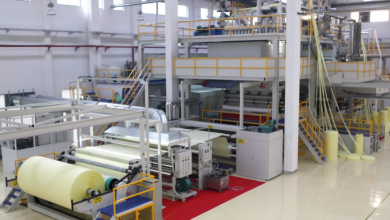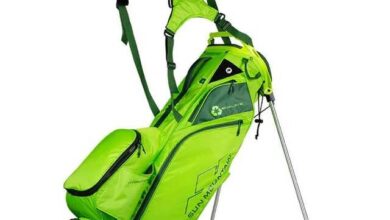What Is Commodity Trading?

Commodity trading involves buying and selling commodities such as gold, oil, wheat, coffee, and other raw materials. These commodities are usually traded in large quantities and can be physically delivered or settled in cash.
Commodity trading is typically done through futures contracts, which are agreements to buy or sell a certain commodity at a future date and at a predetermined price. Futures contracts allow traders to hedge against price fluctuations or to speculate on future price movements.
Commodity trading is an important part of the global economy and plays a vital role in the pricing of goods and services. It also provides an opportunity for investors to diversify their portfolios and potentially earn profits through trading in the commodity markets.
How to Trade Commodities?
Trading commodities can be done through various methods such as futures contracts, options, exchange-traded funds (ETFs), and exchange-traded notes (ETNs). Here are some basic steps to get started with commodity trading:
Educate yourself:
Learn the basics of commodity trading, the different types of commodities, the factors that affect commodity prices, and the different trading methods available.
Choose a commodity:
Decide which commodity you want to trade based on your knowledge and understanding of the market. Each commodity has its own unique characteristics and factors that affect its price, so it’s important to research and understand the commodity you want to trade.
Choose a trading method:
Decide which trading method you want to use. Futures contracts are the most popular method for trading commodities, but options, ETFs, and ETNs are also popular choices.
Open a trading account:
To trade commodities, you need to open a trading account with a broker that offers the type of trading you want to do.
Fund your account:
Once you have opened a trading account, you need to fund it with the required amount of money to start trading.
Place your trades:
Once you have funded your account, you can place your trades based on your analysis of the market and your trading strategy.
Monitor your trades:
Keep an eye on your trades to see how they are performing and make adjustments to your strategy if necessary.
Remember that commodity trading involves risks, so it’s important to manage your risk and only trade with money you can afford to lose. It’s also important to stay up-to-date with news and events that can affect commodity prices.
Commodities Futures:
Commodities futures are contracts that allow traders to buy or sell a specific commodity at a predetermined price and date in the future. Futures contracts are standardized agreements that are traded on exchanges, and they typically represent a large quantity of the underlying commodity, such as barrels of oil or bushels of wheat.
A speculator, on the other hand, may buy a futures contract if they believe the price of the underlying commodity will rise in the future, in order to profit from that increase.
Trading futures can be risky, as prices can fluctuate rapidly and traders may incur significant losses if they are on the wrong side of a trade. Therefore, it’s important to understand the risks involved and to have a solid trading plan and risk management strategy in place before trading commodities futures.
Physical Commodity Purchases:
Physical commodity purchases involve buying and taking physical possession of a commodity such as gold, silver, oil, wheat, or other raw materials. This is in contrast to trading commodity futures, which are contracts that allow traders to buy or sell commodities without actually taking physical possession.
Physical commodity purchases can be made through various channels, such as commodity exchanges, dealers, brokers, and online platforms. Before making a purchase, it’s important to research the commodity market, understand the factors that affect prices, and assess the risks involved.
When buying physical commodities, the buyer typically takes delivery of the commodity at a designated location, such as a warehouse or a refinery. The buyer may also need to arrange for transportation and storage of the commodity, which can add to the overall cost.
Physical commodity purchases can be a good way to diversify an investment portfolio and hedge against inflation, as commodities often have a low correlation with other asset classes such as stocks and bonds. However, physical commodity purchases also involve risks such as price volatility, storage and transportation costs, and counterparty risks. It’s important to carefully consider these risks and to have a solid understanding of the market before making any physical commodity purchases.
Commodities Stocks:
Commodities stocks are stocks of companies that are involved in the production, exploration. Or distribution of commodities such as oil, gas, metals, and agricultural products. These stocks can provide investors with exposure to the commodity markets. And the potential for capital appreciation, dividend income, and diversification benefits.
Investing in commodities stocks can be done through buying individual stocks or investing in exchange-traded funds (ETFs). Or mutual funds that focus on commodities stocks. Before investing, it’s important to research the individual stocks or funds, understand the risks involved. And have a solid investment strategy in place.
Commodities stocks can be a good way to gain exposure to the commodity markets. And potentially benefit from rising commodity prices. However, these stocks can also be volatile and subject to a variety of risks. Such as changes in government regulations, geopolitical events. And fluctuations in commodity prices. As with any investment, it’s important to carefully consider the risks and potential rewards before investing in commodities stocks.
Commodity Pools and Managed Futures:
Commodity pools and managed futures are investment products. That provide exposure to commodity markets through a professionally managed portfolio of futures contracts.
The pool is managed by a professional manager who makes trading decisions on behalf of the pool. Commodity pools are typically structured as limited partnerships or limited liability companies. And investors in the pool receive units or shares that represent their ownership in the pool.
Both commodity pools and managed futures offer investors the potential for diversification, capital appreciation, and downside protection in volatile markets. These investment products may also provide investors with exposure to markets that may be difficult to access otherwise. Such as commodities markets.
However, commodity pools and managed futures are complex investment products. And may involve significant risks, including leverage, market volatility, and counterparty risks. It’s important for investors to understand these risks and to carefully consider their investment goals, risk tolerance. And investment time horizon before investing in commodity pools or managed futures. It’s also advisable to consult with a qualified financial advisor before investing in these products.



